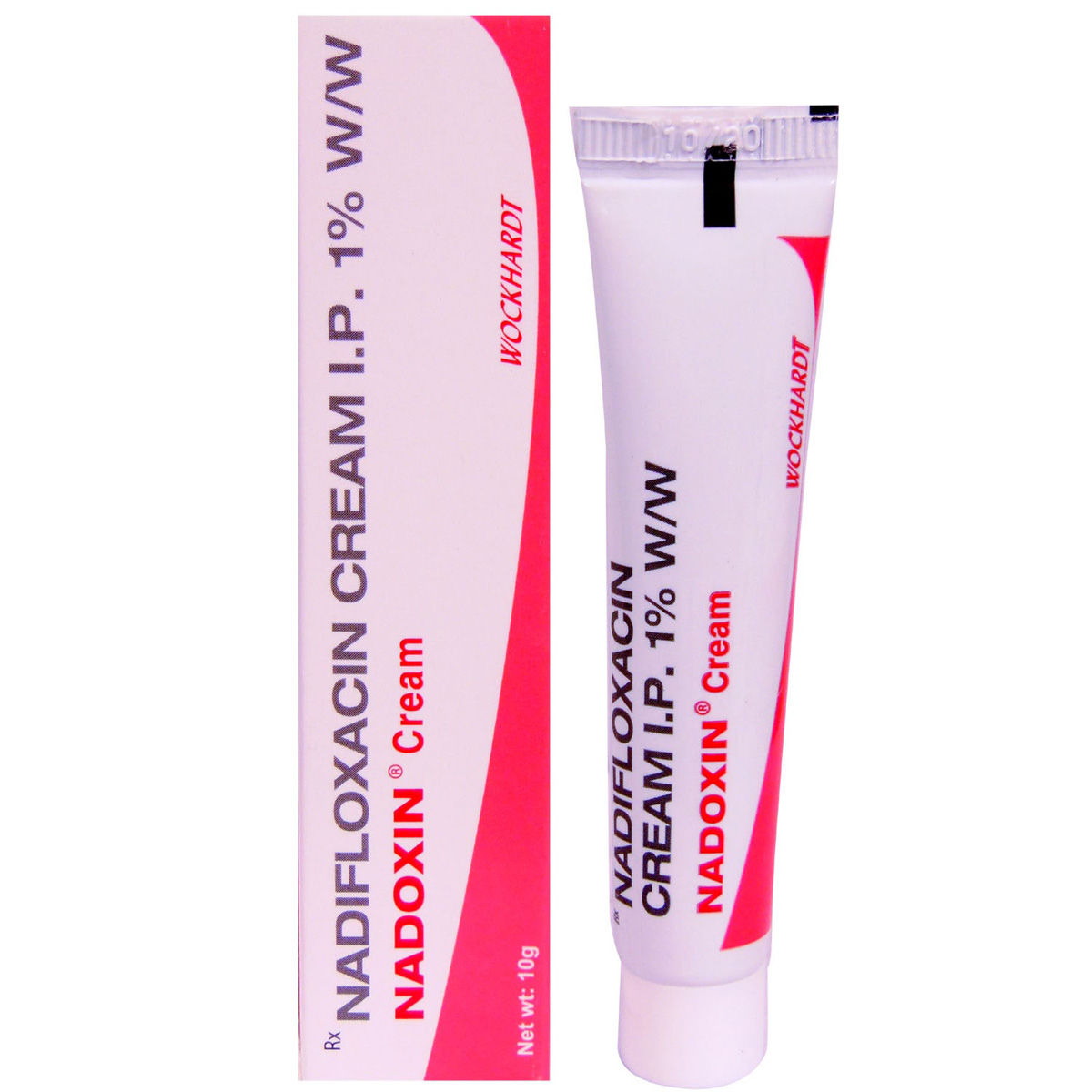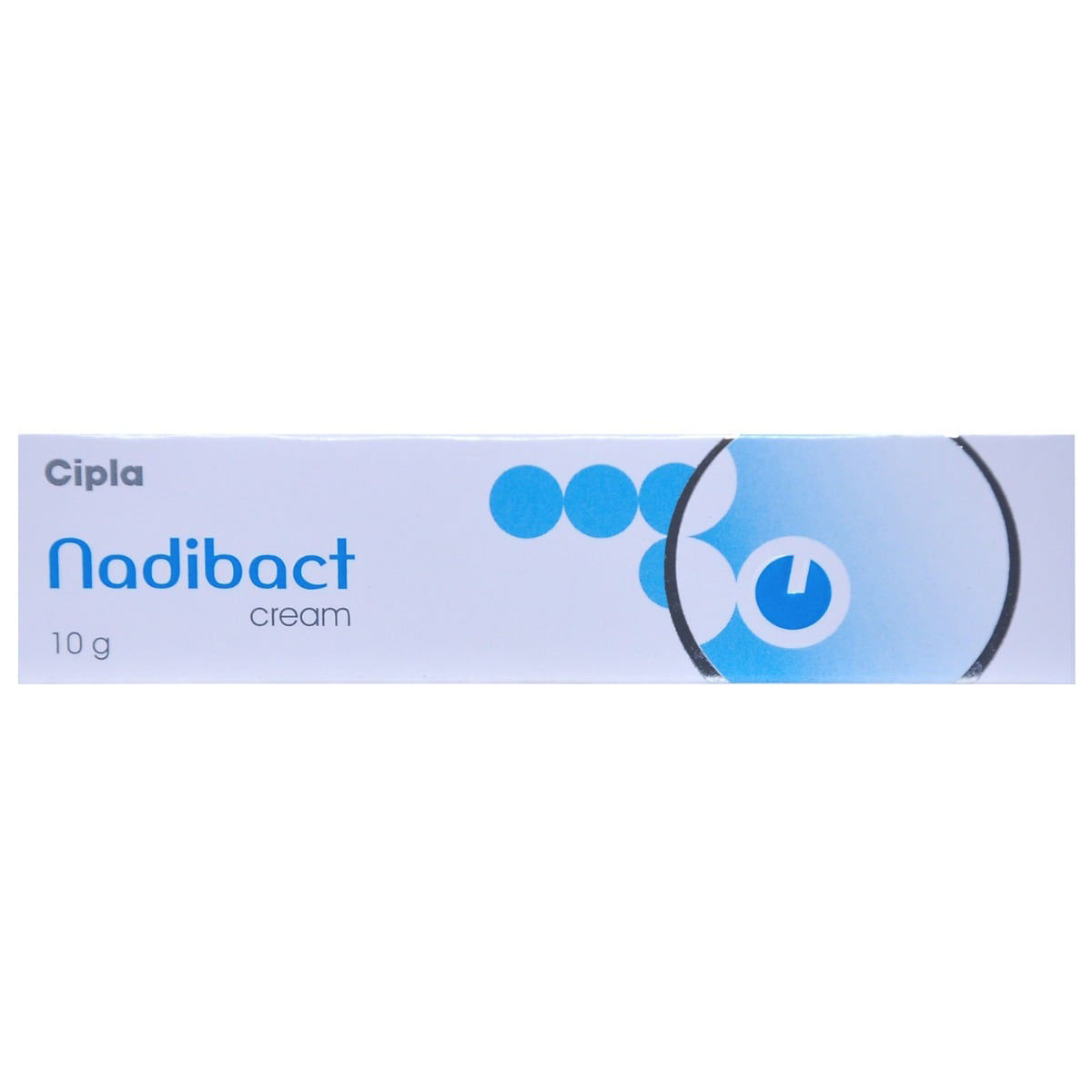Nadizee Cream
₹67.5*
MRP ₹75
10% off
₹63.75*
MRP ₹75
15% CB
₹11.25 cashback(15%)
Free Delivery
With Circle membership
(Inclusive of all Taxes)
This offer price is valid on orders above ₹800. Apply coupon PHARMA10/PHARMA18 (excluding restricted items)
Know Your Delivery Time
Provide Delivery Location

Whats That

Secure Payment

India's Most Trusted Pharmacy

Genuine Products
Composition :
Manufacturer/Marketer :
Consume Type :
Return Policy :
About Nadizee Cream
Nadizee Cream contains a class of antibiotics known as fluoroquinolones, primarily used to treat topical infections caused by the bacteria, including skin infections and acne vulgaris. A bacterial infection is a condition in which bacteria grows in the body and cause infection. It can target any body part and multiple very quickly.
Nadizee Cream contains topical antibacterial Nadifloxacin, which helps treat and prevent a wide range of skin bacterial infections. It is bactericidal and works by killing bacteria that cause infections. It inhibits the repairing of bacterial cells and kills the bacteria, thereby preventing the infection's further spread. Nadizee Cream is a broad-spectrum antibiotic against most Gram-negative bacteria, many Gram-positive bacteria, and some anaerobes bacteria (that lives without oxygen).
Nadizee Cream should be applied in the dose and duration as advised by your doctor. You may experience application site reactions like a burning sensation, itching, and rashes in some cases. Most of these side effects of Nadizee Cream do not require medical attention and gradually resolve over time. However, if the side effects are persistent, reach out to your doctor.
Inform your doctor if you are allergic to nadifloxacin or any of the ingredients of Nadizee Cream. Don't apply Nadizee Cream on broken skin and avoid getting it in your eyes, nose, or mouth. The infected area should not be covered with airtight dressings such as bandages unless directed by a doctor, which may increase the risk of side effects. If you are breastfeeding, wash the area properly before breastfeeding as Nadizee Cream can be harmful if taken by the baby with milk.
Uses of Nadizee Cream
Medicinal Benefits
Nadizee Cream contains antibiotic Nadifloxacin, which helps treat and prevent a wide range of bacterial skin infections caused by most Gram-negative bacteria, many Gram-positive bacteria, and some anaerobes bacteria (that lives without oxygen) including Cutibacterium acnes and Staphylococcus epidermidis. It is bactericidal in nature and works by killing bacteria that cause infections by prevents the formation of their cell wall required for living. It also inhibits the repairing of bacterial cells. Altogether it kills the bacteria. Nadizee Cream has the advantage of good penetration in most deep tissues. Hence, it is used for bacterial skin infections.
Side Effects of Nadizee Cream
- Burning sensation
- Irritation
- Itching
- Redness
Directions for Use
Storage
Drug Warnings
Do not apply Nadizee Cream if you are allergic or have had a severe reaction to nadifloxacin or any other quinolone or fluoroquinolone antibiotics such as delafloxacin, levofloxacin, moxifloxacin, and ciprofloxacin. And also, exposure to sunlight should be avoided while taking Nadizee Cream as it may cause increased phototoxicity or photosensitivity. Don't apply Nadizee Cream on broken skin; avoid getting it in your eyes, nose, or mouth. The infected area should not be covered with airtight dressings such as bandages unless directed by a doctor, as this may increase the risk of side effects.
Therapeutic Class
Diet & Lifestyle Advise
Exfoliate your skin gently. This helps to cleanse the skin by washing away dry and dead skin cells.
Regular exercise helps clear out clogged pores.
Drinking enough water can also greatly improve the general condition of your skin by keeping it hydrated.
Always remove your makeup before going to bed. Never wear makeup to bed.
Spend some time on a good skin-care routine.
Do not use harsh soaps, skin cleansers, or skin products with astringents, lime, or alcohol.
Maintain proper hygiene and keep the affected area clean.
Habit Forming
How Nadizee Cream Works
What if I have taken an overdose of Nadizee Cream
Alcohol
Safe if prescribed
No interaction is found. In case of any discomfort, please consult a doctor.
Pregnancy
Safe if prescribed
No interaction is found. In case of any discomfort, please consult a doctor.
Breast Feeding
Caution
While breastfeeding, be cautious that Nadizee Cream is not applied or if applied priorly. The nipple area and breast part should be thoroughly washed before feeding your baby as it can be harmful to be baby if intaken along with milk.
Driving
Safe if prescribed
No interaction is found. In case of any discomfort, please consult a doctor.
Liver
Safe if prescribed
No interaction is found. In case of any discomfort, please consult a doctor.
Kidney
Safe if prescribed
No interaction is found. In case of any discomfort, please consult a doctor.
Children
Safe if prescribed
Nadizee Cream can be given to children but under child specialist medical supervision. Nadizee Cream is prescribed to the children to treat complicated skin infections.
Author Details
We provide you with authentic, trustworthy and relevant information
FAQs
Disclaimer
Product Substitutes
Reference
- https://www.gov.uk/drug-safety-update/fluoroquinolone-antibiotics-new-restrictions-and-precautions-for-use-due-to-very-rare-reports-of-disabling-and-potentially-long-lasting-or-irreversible-side-effects
- https://pubchem.ncbi.nlm.nih.gov/compound/nadifloxacin
- https://www.ncbi.nlm.nih.gov/pmc/articles/PMC4257952/















